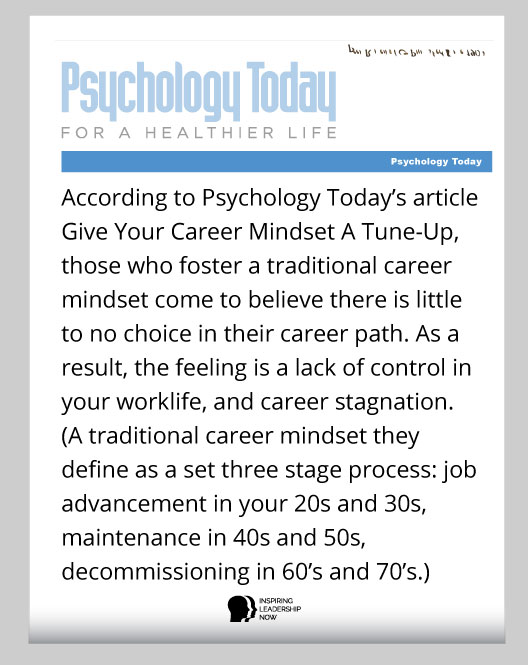Last updated: 2 November 2020
![[GUIDE] How To Deal With A Career Crisis During COVID-19 [GUIDE] How To Deal With A Career Crisis During COVID-19](https://d28ufb1dgqfiui.cloudfront.net/wp-content/uploads/2020/10/how-to-deal-with-a-career-crisis-during-covid19.jpg)
Lockdown. Social distancing. Smart working. As the global population transitions through the waves of Covid-induced constraints, you too may be wondering how to deal with a career crisis during COVID-19.
All Coronavirus-related terms that you will instantly recognize, and that have meant massive changes to all aspects of work and life.
Such changes on a professional, social, and personal level, especially those that come with such heavy restrictions can make you question your life and your work… BIG TIME!
Maybe, like many, you had or are having, a few weeks that were very difficult and made you question the relevance of your work or the meaning behind your job, or perhaps even existence itself. You are not alone.
This article will show you how to navigate a Covid-induced career crisis and come out on top… or at least with a solid plan.
How To Plan The “Perfect” Career

Mark Manson, kicks off his article How To Find The Perfect Career with this depressing stat: (get ready for it) – on average you will spend between ten and fourteen years of your life at work.
Oh yeah. You read it right… 10-14 YEARS.
For those of you who love a percentage to go with a stat, that works out as 20% to 25% of your adult life.
However you frame it, that’s one helluva long time doing something that doesn’t light your fire.
In fact (another depressing stat’ alert) 80% of people actually hate their jobs . And if you are one of those 4 out of 5 people, that means you’re doing something you hate for a really big chunk of your adult life.
The whole Coronavirus situation has served to highlight where life and work might not be floating your proverbial boat. So, grab the life preserver, and let’s rock a solid plan to start making some changes.
Hop on board.
Straight talking Mark Manson argues that the “perfect career” is an intersection of three things:
- What you value
- What you’re good at
- What the world values
Let’s break it down and look at these ones by one. Get your pen and paper/typing finger/recording device ready because this requires a little self-inquiry.
Ok, let’s go.
Working Out Your Values

Your values are things that are meaningful to you. Maybe that’s the environment. Or creating respectful relationships. Or ethical trade. Or a super slick organization.
If you don’t have a raft of things coming to mind, ponder upon this question for a moment: where do you naturally spend your time and energy when left to your own devices? (Watching Netflix doesn’t count – unless you are avidly writing and posting reviews to everything you watch!)
Do you find yourself creating phenomenal spreadsheets that revolutionize your home accounts?
Or do you find yourself shopping for farm-to-table veg, then talking food-miles and sustainability with the store attendant?
To further define your values Manson suggests asking yourself this:
“What’s a big problem in the world that people don’t care enough about?”
Maybe it’s that there is not enough awareness around factory farming, and a lack of ethical, local grocery stores in your neighborhood.
Perhaps you are outraged at rising sea-levels and know a myriad of energy-saving practices or suppliers everyone could use. Or maybe it’s the growing economic inequality that’s lighting you up.
It doesn’t have to be a world-changing thing. Maybe there just aren’t enough decent independent coffee shops in your area. And you have an idea for an app that might help to change people’s coffee habits to support the nearby independents and encourage more of them.
If you have something bubbling up along these lines, it’s highly likely that you value it more than most other people . It’s a great start.
To bring even more clarity onto your values Manson suggests that you now ask yourself: “What problems do I enjoy solving that most other people don’t?”
Perhaps it’s that you have recently done your personal accounts with joyful ease and cannot believe that others end up sobbing under a pile of paperwork and receipts in their process.
Or maybe you spent hours on the phone listening to friends pour their hearts out, when others might have hung up ten minutes into the call.
In Manson’s own words: ‘Most people hate doing these things. Which is why they pay others (really well) to do it for them… Hint, hint’
The greatest online JavaScript tools can be found at html-css-js.com: script beautifier, compressor, cheat sheet or just read the blog.
What Are You Good At?

What are your technical skills?
Maybe you have got a ton of HR skills and experience. Do these align with your values? If so, great start. If not look at ways of up-skilling in your chosen path with online courses or volunteering opportunities, for example.
Next, look at your “soft skills” – the intangible skills that are so important in todays’ hyper-competitive world. Manson advises taking your soft skills and looking at how to apply them to a new career:
Great with emotional conflict? Great with people? Empathic? Good listener? Using the HR example, maybe combining this with this soft skill-set, points to a career as a Life Coach? – Listening to and sharing empowering practices with others for the betterment of their lives and careers.
Maybe you are great at managing people and expectations? Creative with ideas? And have some technical skill in design work? Well – what about a move into Marketing?
If you are struggling to find your strengths ask a trusted friend , or family member. Get a reflection. Sometimes people see skills and talents in you that you would overlook in yourself.
Take time to talk about it with confidantes, it’s worth it.
In the Harvard Business Review article Reinventing Your Career In The Time Of Coronavirus, Herminia Ibarra writes that talking it out has tons of benefits:
‘ Self-reflection , paradoxically, is a practice best nourished by talking out loud in social exchanges with kindred spirits who respond, sympathize, commiserate, question, read your body language, and share their own experiences.’
Everyone has a unique skill set and an array of abilities. It can take time and talking to tease them out. It’s a valuable exercise – because once you have got this part down you can look at how to make money from it.
What Does the World Value?
This is figuring out how you’ll get paid. If the world values what you have to offer, you can monetize it.
Simple! Manson has two ways of looking at how to make this happen. The entrepreneurial route and the job route.
-
The Entrepreneurial Route:
From your lists, ramblings, brainstorms or diagrams from the above questions, take your talents and values. Now, look at where the market is under-serving the world and develop something to fill the gap. This is entrepreneurship.
If you can create something that people are willing to pay for AND work tirelessly to make this happen, this may be the path for you.
Maybe you LOVED planning your costume wedding and from your years of working in cabaret-based hospitality or events you have an amazing array of outlandish contacts. Go theme wedding planner!
It’s risky, of course. It will be full of trials and “fails” (aka learning experiences). If you’re game for this and have the right situation (i.e. don’t have dependents to support, or without a substantial back-up plan or cash reserve) it will be worth the reward. No risk, no reward, right?
-
The Job Route:
Take what you have identified as your values and take your strengths combined, now look for job opportunities already out there that tap into both of these. You will find there are tons of opportunities for your skill set – sometimes it just takes a little creative thinking.
Maybe your love of ethical, local produce combined with your awesome blog writing experience (a side hustle of yours) means that food-writing will fit you like a glove. So, go get!

Experiment with Possibilities
Before you quit your current job and make the dramatic exit you’ve been dreaming of, HBR ’s Ibarra advises experimenting with possible selves:
‘The ideas we all have about who we might want to become.’ Compare and contrast your options.
For example, Wedding Planner entrepreneur, versus a job as Events Manager at a quirky PR company.
According to HBR, the activity of comparing and contrasting roles helps you work through both practical and existential questions that are driving forces behind your career change . It helps you answer Manson’s questions (above) and get defined on what you value, who you are and where you can best contribute.
Let yourself imagine an array of possible selves and potential futures for you to have more options on how to deal with a career crisis during COVID-19.
>> Related article: The Emotional Impact Of COVID-19 In The Workplace: 4 Self-Care Practices To Help “At Risk” Entrepreneurs & Leaders Deal With Anxiety & Depression
Top Job Satisfaction
Above finding a potential new career path and making yourself the best candidate for the job, absolutely key is finding the right place to work in your elected field.
The environment and job set-up, in other words where and how you work, count for as much as money in terms of job satisfaction.
Money is a part of any job, you all know that. And a little more dollar is always welcome. Yet for the vast majority of people money isn’t the defining factor. In fact, there are multiple other factors that weigh-in to job-based wellbeing, fulfilment and pleasure.
Things like opportunities for growth and development , training and advancement. How respected you feel; how much autonomy and influence you have. Your level of achievement.
Create your Meaning

To create ultimate job satisfaction and finally figure out how to deal with a career crisis during COVID-19, it is absolutely necessary for you to have and to find meaning in your work. This means that sometimes, especially the tough times, you have to create the meaning yourself.
Maybe the meaning in your work is that it enables you to provide for your family. Perhaps it is that you get to make a difference in people’s lives . Or perhaps you get to express yourself creatively and bounce off others, inspiring them and yourself at the same time.
Whatever the meaning in your work is, it is personal to you – and finding and creating it is essential if you want to like, or love, your job.
Remember, all jobs have their downsides. Even your dream career is going to have parts that suck. That’s just life. There is no such thing as a job that is endlessly pleasurable.
Manage your expectations and keep creating meaning . If there is no meaning, re-read the section on finding your values and skills, and get creative!
Get Protean!

No, it’s not a new form of protein bar.
Protean means an ability to readily assume different forms, or character. Someone who is versatile is an example of being protean.
Essentially the more flexibility, or the more options you have, the greater your possibility of succeeding on any chosen path. It’s the Requisite Law of Variety in action.
Getting protean in your career mindset allows you to approach your path as self-directed rather than imposed on you. If you are self-directed it allows you to feel that you can express yourself, your values and your identity in how you work.
It’s a scientific fact that motivation and work (Self-Determination Theory FYI) is determined by the extent to which you feel in control of what you do.
The more in control you feel the more motivated, intrinsically rewarded , you are. The more motivated you feel, the more you feel your job expresses your true identity.
If you are doing a job that doesn’t inspire you there’s nothing like the restrictions of a global pandemic to spark the desire to make some lasting changes.
Life and work through Coronavirus have and continue to be a challenge. It may even be responsible for your serious work funk, and you finding ways on how to deal with a career crisis at this point in time. However, it is also a huge opportunity for your growth. With these tools it can be just the right push needed to make the career changes you have been dreaming of for years.
While figuring out ways on how to deal with a career crisis during COVID-19, this may be a great opportunity to start living a life and creating a career with more purpose , more meaning, more YOU.


